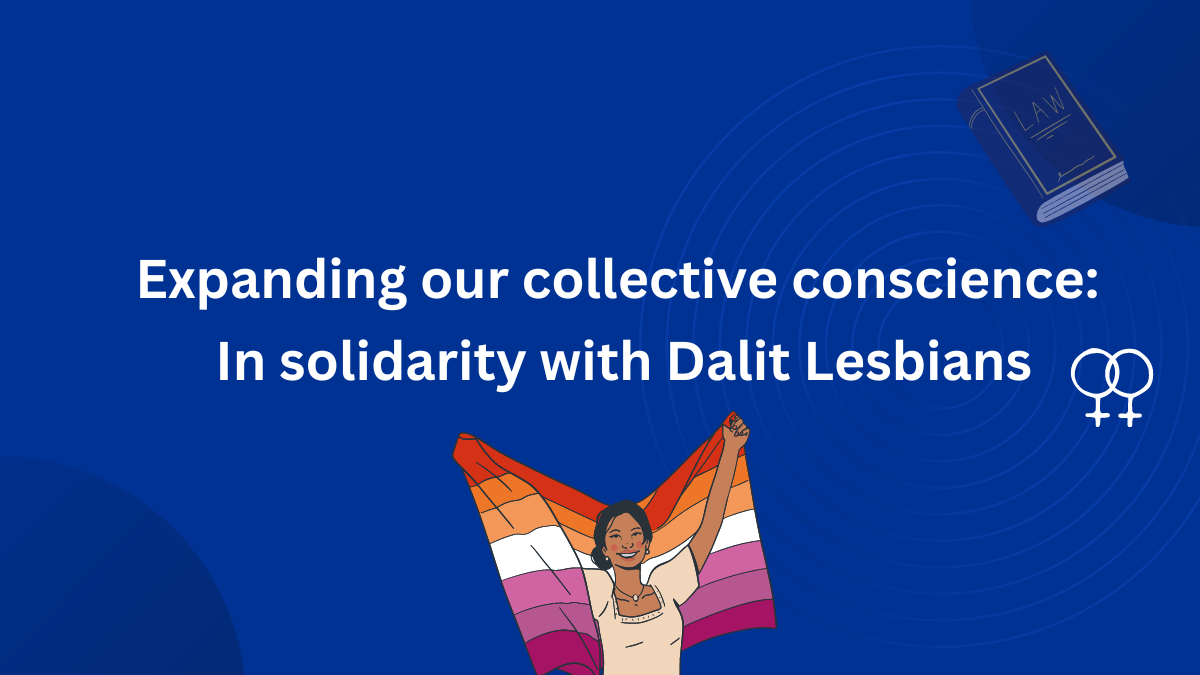When we talk of privilege we talk of caste. The privilege and prejudice duality exists within countless countries, but in India it is accepted as tradition and norm; a stagnant structure of oppression, here to stay for eons to come. Why are we, as a society, so apathetic or resistant to change? Dr. Ambedkar once said, “Indifferentism is the worst kind of disease that can affect people.”
Out of the margins as we peek at the man behind the curtains, we are greeted with unconcern.
There has been documented research on the caste based sexual violence against Dalit womxn and how pronounced it is, as compared to sexual violence against non-Dalit victims and survivors. According to government data 10 Dalit women and girls are raped daily across India. This statistic should shock us. Instead, we have been sensitized to feel unconcern. With India at the cusp of marriage equality, the realities are a stark contrast. While upper caste folks are vying for a place in the age-old institution of marriage, those of us who aren’t part of the upper caste narratives have concerns around housing rights, equitable employment opportunities, adoption and surrogacy rights, access to healthcare, horizontal reservations etc.
This Dalit History Month, when we are also celebrating Lesbian Visibility week, we would like to explore the intersections of these identities, together. This means having to navigate prying eyes, invasive questions and casteist/misogynistic euphemisms. In many cases, Dalit lesbians are forced to leave their homes and families due to the stigma attached to their sexual orientation. This, in turn, can lead to financial instability and limited employment opportunities.
Despite these challenges, Dalit lesbians are finding ways to resist and challenge the discrimination they face. One such act of rebellion gives us a glimpse into the strife and joys of being a Dalit lesbian: Geeli Pucchi. Geeli Pucchi is a recent Indian film that has broken barriers and brought Dalit lesbian narratives to the forefront of Indian cinema.
Geeli Pucchi is a groundbreaking episode (from the hit TV Series Ajeeb Daastans for Netflix) for Dalit lesbian narratives because it challenges the dominant narrative of Indian cinema, which often ignores the experiences of marginalized communities. The film brings attention to the unique challenges faced by Dalit lesbians, who must navigate multiple forms of oppression due to their caste, gender, and sexuality. It provides a nuanced portrayal of the complexities of identity and the challenges faced by those who exist at the margins of society.
In a world where representation matters, to be able to build futures with folks who don’t fit the conventional, traditional and binary norms of gender and sexuality, Geeli Pucchi was a breath of much needed fresh air. Now, it’s a matter of making space for more Dalit lesbian narratives penned, directed and acted by Dalit lesbians themselves.
We hope this piece finds you energized and curious about a robust future. “We’re here, we’re queer and we’re not going away!”
 Cart is empty
Cart is empty 

